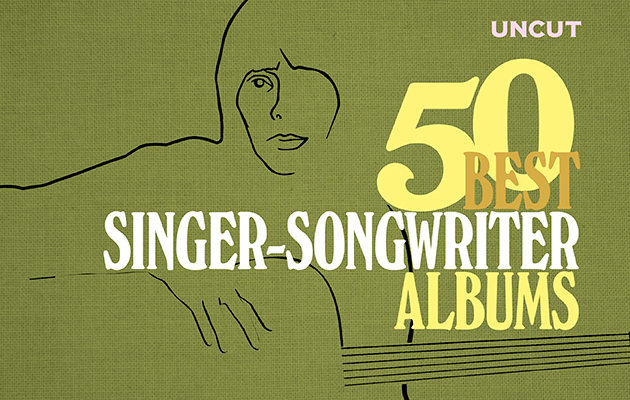Back in our December 2013 issue (Take 199), the Uncut team took on the emotional task of compiling a Top 50 of the most powerful, confessional singer-songwriter albums. From Tim Hardin 1 to Once I Was An Eagle (in chronological order, that is)... are you ready to be heartbroken? ____________________...
11 David Crosby
If I Could Only Remember My Name
(Atlantic, 1971)
The death of his lover Christine Hinton, who died in a car crash in September 1969, had a profound effect on David Crosby. After CSNY split the following year, he retired to his Sausalito houseboat and, accompanied by friends including Jerry Garcia and Graham Nash, he set about numbing the pain with drink and cocaine and articulating his grief in a set of ravishing folk-jazz songs that often sounded like an extended wake. “Laughing” found its narrator searching for a light to guide him from the darkness. “Traction In The Rain” addressed the difficulty of making it through another day, while “I’d Swear There Was Somebody Here” suggests Hinton’s spirit was always near.
____________________________
12 Judee Sill
Judee Sill
(Asylum, 1971)
The first signing to David Geffen’s new West Coast label (but overshadowed by the mogul’s other charges, the Eagles and Jackson Browne), Sill was, on paper at least, cut from the same cloth as a fellow female confessor like Joni Mitchell. However, a troubled upbringing, time spent in jail and an ongoing heroin habit arguably informed songs that were starker and less likely to be embraced by mainstream listeners; obliquely autobiographical on “Crayon Angels” and “The Lamb Ran Away With The Crown”, daringly controversial on “Jesus Was A Crossmaker”, depicting the son of God as a sexual predator. The elegance of the musical arrangements and multi-tracking of her voice may suggest the comforting wash of a heavenly choir, but there’s no disguisingthe drama that lay beneath.
____________________________
13 Nick Drake
Pink Moon
(Island, 1972)
Stricken by the commercial failure of his first two albums, Drake retreated into a depressive shell, recording Pink Moon in two nights in what producer John Wood remembered as a state of monosyllabic despair. The results remain some of the starkest recordings ever made, stripped to the bone to expose a soul in enormous psychological torment. “Place To Be” casts aside a young man’s dreams in place of some ominous future, “darker than the deepest sea”, while on the disturbingly desiccated blues of “Know” the only words are: “Know that I love you/Know I don’t care/Know that I see you/Know I’m not there.” Drake broke down completely following Pink Moon, dying in 1974.
____________________________
14 Gene Clark
No Other
(Asylum, 1974)
https://www.youtube.com/watch?v=H9RyvUGJ5Wc
Retreating from Los Angeles and its many disruptive influences, Clark relocated to a Northern California ocean-view cottage, immersing himself in Zen, meditation, nature, family. Though the result, No Other, has been presumed to be submerged in a drug haze, eyewitnesses refute that. The songs, working on multiple planes, spar with Clark’s subconscious on many subjects, including the vast power of music (“Strength Of Strings”) and the cyclical nature of life, death, and creativity (“Silver Raven”), alas alighting on some sobering realisations; as in “The True One” which alludes to his generation’s errors: “They say there’s a price to pay for going out too far.” It all pours forth in the epic introspection of “Some Misunderstanding” — an elegiac appeal for redemption, forgiveness, empathy, transformation.
____________________________
15 Jackson Browne
Late For The Sky
(Asylum, 1974)
Apparently heartbroken from his affair with Joni Mitchell, Jackson Browne’s watershed third album took the poet-songwriter aesthetic into untrammeled, markedly intimate territory. “How long have I been sleeping?” he beseeches of himself in Sky’s title track, while in “Fountain Of Sorrow” he crawls deeply inward, revealing issues of identity, illusion, and romantic confusion (“You’ve known that hollow sound of your own steps in flight,” he sings). Still, for Browne – a newly minted father in 1974 – existential matters deeper than mere romance inform Sky’s most moving numbers: birth, or at least children and the kind of world they will inherit, on the sweeping, apocalyptic “Before The Deluge”; making peace with oneself (the confessional ennui of “The Late Show”); and death – “For A Dancer”, a tribute to fallen friend Scott Runyon that celebrates life’s ephemeral qualities within the sadness.



